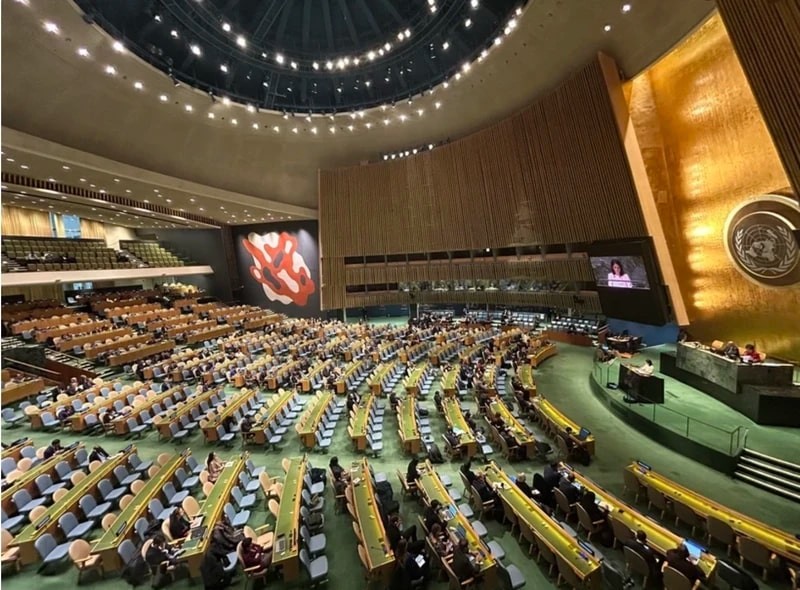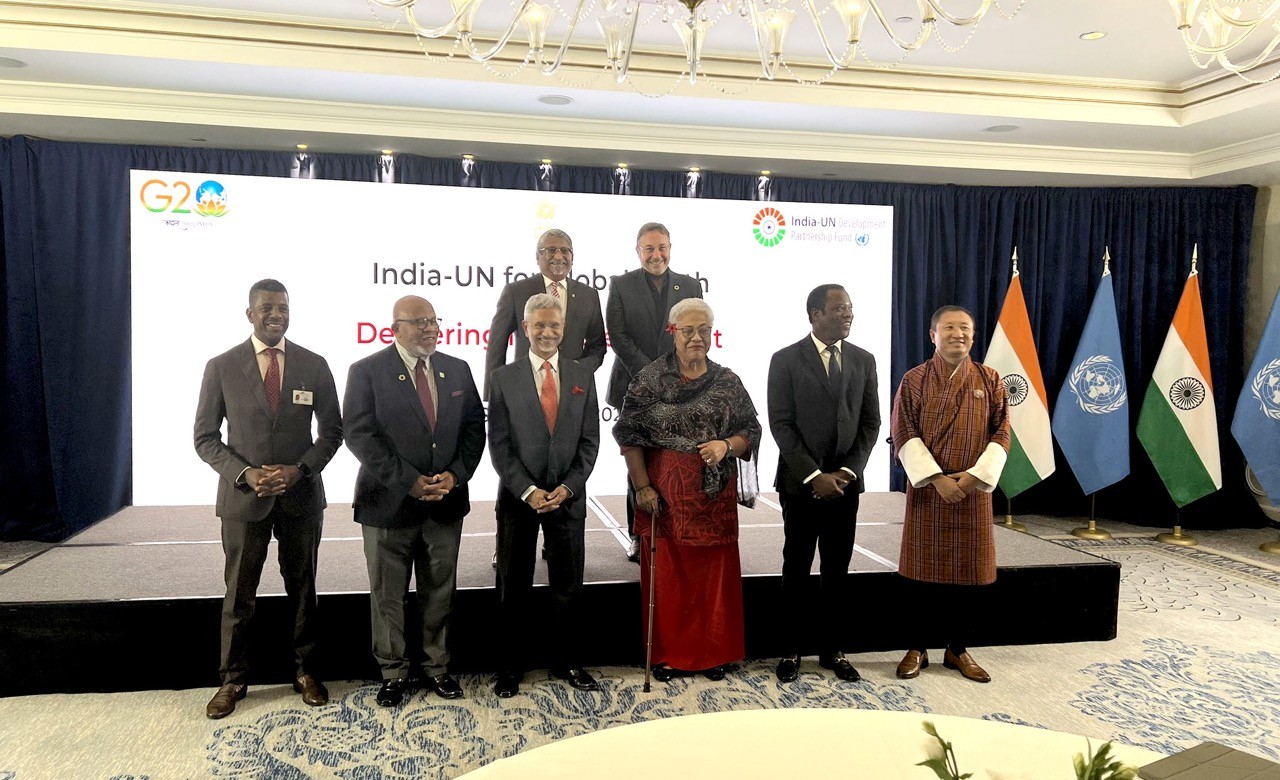Vietnam Signs High Seas Treaty: Significant Step Towards Sustainable Use of Marine Environment
Vietnam - one of the first nations to sign the High Seas Treaty
Vietnamese Foreign Minister Bui Thanh Son signed the United Nations (UN) agreement on the conservation and sustainable use of marine biological diversity of areas beyond national jurisdiction (the High Seas Treaty) on September 20, making Vietnam one of the first countries to sign the international-legally binding instrument under the 1982 UN Convention on the Law of the Sea (UNCLOS).
According to Minister Bui Thanh Son, for Vietnam, the agreement has many important meanings, underlining that the pact continues to strengthen the system of legal documents based on the 1982 UNCLOS in the management of seas and oceans towards the goal of sustainable development. It reaffirms the 1982 UNCLOS as the legal framework for all activities at sea. All maritime claims must not harm the common interests of the international community. The scope of international waters, where marine living resources belong to all humanity, must be determined through and in accordance with 1982 UNCLOS.
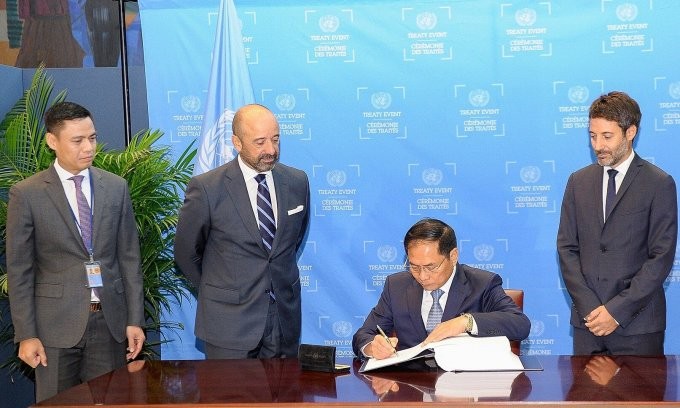 |
| Foreign Minister Bui Thanh Son signs the High Sea Treaty, a United Nations agreement on the conservation and sustainable use of marine biological diversity of areas beyond national jurisdiction. (Photo: Thu Hong/VNA) |
The signing of the agreement also conveyed the message that Vietnam is a positive and responsible member of the international community as well as the country’s efforts to join hands with countries to deal with global issues, contributing to peace, prosperity, and sustainable development.
High Seas Treaty - a historic agreement under the 1982 UNCLOS
The ratification and signing of the deal is a historical milestone in the international community’s efforts in environmental protection during the implementation of the 2030 Agenda, especially goal No.14 on the preservation and sustainable use of oceans and maritime resources.
The agreement will take effect once it has been ratified and approved by 60 countries. 67 countries signed the treaty on the first day of the 78th session of the UN General Assembly, including the United States, China, Australia, Britain France, Germany, and Mexico as well as the European Union as a whole, according to the UN.
The High Seas Treaty regulates the use, distribution, and conservation of marine genetic resources in international waters. This is a new potential resource, as it pertains to enormous sea areas that account for more than 60% of the surface area of the oceans and are not owned by any government. Many locations in the ocean's depths offer exceptionally rich ecosystems, with many rare and valuable genes of high scientific worth and enormous economic potential, particularly in pharmaceutical and cosmetic production.
Therefore, the treaty is important for global efforts to effectively conserve and manage at least 30% of the world’s terrestrial and inland water areas, and marine and coastal areas by 2030. It also establishes principles for sharing the benefits of "marine genetic resources" collected through scientific research in international waters.
The Treaty's Implications for Vietnam
Foreign Minister Bui Thanh Son stated that the treaty allows Vietnam and other developing countries to participate in scientific research, transfer marine technologies, and receive economic benefits shared by other countries that have greater advantages in marine technology and strong financial science and technology to exploit genetic resources.
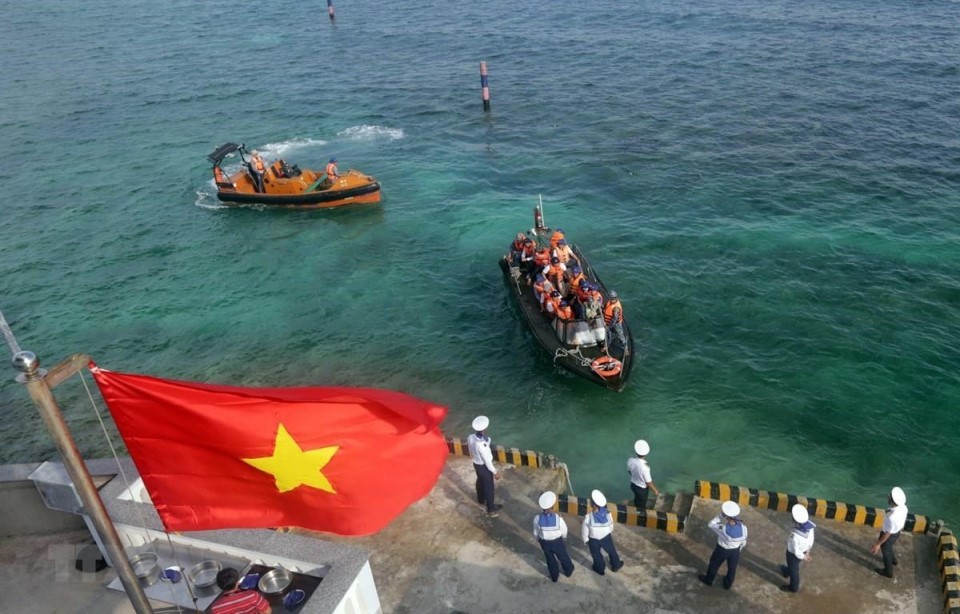 |
| Illustrative photo: Da Lat Island in Truong Sa Archipelago. (Source: VNA) |
The treaty also establishes and promotes international cooperation mechanisms and regional marine cooperation to preserve and share the benefits of marine genetic resources, providing opportunities for Vietnam to promote cooperation, strengthen intertwined interests, and contribute to homeland protection early and from afar.
At the same time, Vietnam's early participation in the treaty's negotiations and contributions to its construction shall help the country realize its strategy of actively and responsibly participating in the resolution of international and regional issues related to seas and oceans, as well as its policy of playing a core, leading, and mediating role at multilateral forums of strategic importance, as stated in Directive 25 of the Party Central Committee's Secretariat on Seas and Oceans on enhancing the country’s multilateral diplomacy until 2030, Son said.
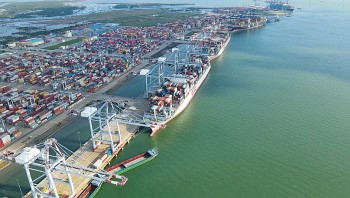 | Resolution 36-NQ/TU Reasserts Marine Economy Development Based on Green Growth Sea economic expert Nguyen Chu Hoi emphasized the role of the sea in the socio-economic development strategy and the implemenation of Resolution 36-NQ/TU by developing ... |
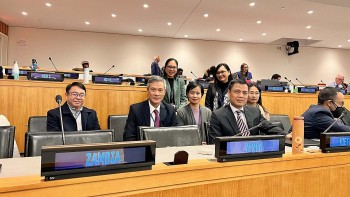 | Vietnam Puts Forward Initiatives for Marine Biological Diversity The fifth session of the Intergovernmental Conference on an international legally binding instrument under the United Nations Convention on the Law of the Sea (UNCLOS) ... |
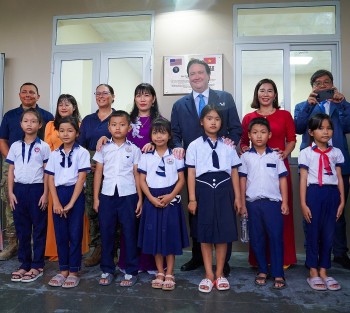 | Pacific Partnership 2023 Successfully Completes First Stop in Vietnam The Pacific Partnership 2023 (PP23) program was successfully held from August 9-18 in Phu Yen Province, allowing participants, including US and Vietnamese personnel, to work ... |
Recommended
 Seas and islands
Seas and islands
Vietnam Endorses Common Voice on Ocean Jurisdiction
 Seas and islands
Seas and islands
Dialogue as Key to Settling Disputes and Advancing Law of the Sea
 Seas and islands
Seas and islands
RoK Navy Ship Pays Friendly Visit to Da Nang City
 Seas and islands
Seas and islands
Naval Region 5 Promotes Reading Culture, Fosters Patriotism
 Seas and islands
Seas and islands
Coast Guard Region 2 Command Hosts Philippine Coast Counterpart
 Seas and islands
Seas and islands
Vietnam - Thailand Navy: Coordination to Well Address Problems at Sea
 Seas and islands
Seas and islands
Honoring the Fallen: Incense Offering for the 37th Anniversary of Gac Ma
 Seas and islands
Seas and islands

